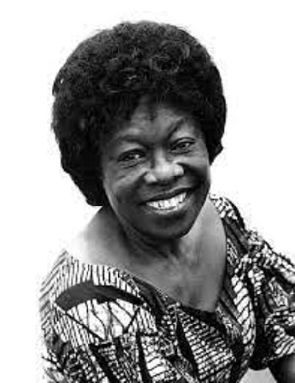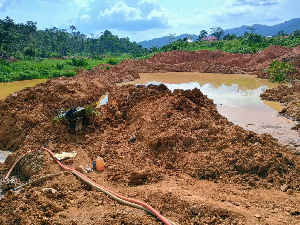I never knew that a book could be published with different covers, same cover design but different colour scheme for the same text until Dr. Letitia Obeng requested my assistance with the publication and launch of her book, ‘An Anthology of a Life Time’ (published 2018).
She decided to have the cover in four different colours, so that people could have a choice, she told me. I couldn’t decide which cover I preferred, but she had a pragmatic solution: she gave me one of each of the 370+ pages collection of her life work. In her words, “a record of my thoughts, views and actions on a large variety of subjects.”
The title, too, had her singular touch. When I pointed out to her that the usual spelling was not two words, but one, ‘lifetime’, she said characteristic, infectious laugh, that then that would be her spelling. So “Life Time” it stayed! That is just a glimpse of the kind of amiable, but daring, resourceful and forceful personality Dr. Obeng was. Although she was much older, and we kept in touch only sporadically after my first interview with her for The Mirror Weekly, I believe I can say that she considered me a friend.
Dr. Obeng has countless firsts to her credit, including: the first Ghanaian woman to be awarded a Bachelor of Science degree in Zoology and Botany (1952), a Master of Science degree in Parasitology (1962), and a Ph.D. in Tropical Medicine (1964). She obtained her Bachelor's and Master of Science degrees from the University of Birmingham, UK, and her Ph.D. from the prestigious Liverpool School of Tropical Medicine (LSTM), UK.
A Silent Heritage, the thought-provoking title of her autobiography (553 pages, published in 2008), reflects her well-known passion for water management and the environment, the need to “protect and preserve into the future” As she explains in the introduction: “(We are) living on a planet richly endowed with an amazing range of resources. Without any effort on our part, we have a generous supporting inheritance. I see it as a priceless gift. For me, it is Our Silent
Heritage.”
Letitia Eva Amma Takyibea Asihene, was the fifth of eight children of Rev Emmanuel Victor and Mrs. Dora Asihene. In 1950, her father, the Very Rev Asihene became the seventh Moderator of the Presbyterian Church of Ghana. The Asihenes of Anum, Eastern Region, were by all standards a close-knit, outstanding, high-
achieving and artistic family. Notably, her elder sister, the late Theodosia (Mrs Okoh), too, is a household name as the designer of the Ghana flag.
Dr. Obeng’s quick smile, ready laughter and friendliness belied a razor sharp mind which earned her the countless ‘firsts’ not only as a scientist, but also as a committed patriot and daughter of Ghana and Africa. She promoted constantly the wearing by Ghanaian educated, elite women the wearing of the national costume, the ‘ntama’ (cloth outfit) at a time when it was deemed a must
for educated women to wear western attire. She said that even during her period in Europe, she always wore an ntama.
On completion of her studies in the United Kingdom, Dr. Obeng returned to Ghana and became the first female scientist at the (now) Kwame Nkrumah University of Science and Technology (KNUST).
In 1953, she and her longtime 'love and perfect friend', Mr. George Ahwireng Obeng, a fellow lecturer at the then College of Technology, Kumasi (later KNUST), got married. But tragically, her beloved George died in 1959, leaving her a single parent to their three young children. That all three children have doctorate degrees in their respective fields is evidently testimony to her
exemplary parenting.
Others, too, benefitted from her guidance and support, especially her extended family. Her nephew, Rev Dr. Emmanuel Apea told me: “Dr Obeng was my aunt. My grandmother and her father were siblings. Being the first woman Ghanaian scientist, I was very proud of her. As a student at Achimota School, she became my role model.
“Thus, not only did I pursue science in the university, also, she could partly take some of the credit for my international career that led me to become Chief
of Section (Science Education) at UNESCO headquarters, Paris, prior to my later status as Director. I could also say that Dr. Obeng’s keen interest in women’s leadership in science might have caused me to be an advocate for women in science and religion.”
In commemoration of the Fourth International Women’s Conference (IWC) in Beijing, China, in 1995, Ghana acknowledged pride in Dr Obeng’s achievements in an unusual, unexpected and uplifting way, with her image on a postage stamp. “I learned later that few such stamps had been produced for the (IWC) and mine was one of them. I felt so honoured,” she wrote.
In 2006, she was honoured with state’s highest award, the Order of the Star of Ghana, elected the first woman to the Fellowship of the Ghana Academy of Arts and Sciences, in 2008 and she was unanimously chosen the first female President.
Notably, when her alma mater, the LSTM, received its degree awarding authority in 2017, she was the first person it awarded its first Honorary Doctor of Science (DSc) degree in its 120-year history.
That was in December, 2018, some 50 years after Dr. Obeng obtained a PhD degree from the LSTM! It was her second Honorary DSc award in a year. Earlier, in
November, 2017, the KNUST where she was one of the first lecturers in the early fifties, had awarded her an Honorary DSc.
Despite her renown, Dr. Obeng was an unassuming person and extremely appreciative of even the slightest help, demonstration of friendship, or favour rendered her. When she invited me to the launch of ‘A Silent Heritage’, I had no idea that she had done me the honour of a mention in it: “Although I had a busy schedule I continued to be kept occupied most weekends by invitations (to) functions. During that period, I remember from that time, a charming (AY-A), who then a young pioneer female journalist, covered some of my events in her
gentle way, with quiet efficiency.”
But the message she wrote in the copy she had signed for me was even more inspiring: “Ajoa Yeboah-Afari, congratulations on a brilliant career.”
Equally gratifying was her message in my copy of the Anthology: “Ajoa, can’t thank you enough. Best wishes.”
In January, 2016, she invited me to her 91st birthday lunch at the M Plaza Hotel, in Accra. It was attended by scores of distinguished guests of diverse backgrounds and ages, many of them household names. There was a live band and as we danced the afternoon away, it was hard to tell that it was a 91st birthday celebration!
Incidentally, the invitation had presented me with a problem: what suitable gift could one give a well-to-do nonagenarian? Anyway, on a hunch, I got her a gift box of Scottish shortbread, praying that she was a fan of those biscuits. A couple of days later a gracious thank you note came from her: “I have been wondering how you knew that I like Scottish shortbread! Many thanks. I shall enjoy your present.”
Among other career honours, she served as the Representative of the UN Environment Programme (UNEP) to Africa and the Director of UNEP’s Regional Office for Africa, based in Nairobi, Kenya.
Dr. Obeng was an instrumental role in the establishment of Ghana’s Institute of Aquatic Biology (IAB) of the Council for Scientific and Industrial Research (CSIR). Within the CSIR, her work with the IAB, now the Water Research Institute, put it definitively on the map.
The record is that she “intensely promoted the need for a national freshwater research programme for the management of the extensive inland water system of Ghana and the Volta Lake.”
In my opinion, she needs to be celebrated as widely as possible, because she was Dr. Letitia Obeng not only of Ghana, but also of the world. And although these are only my glimpses, I believe they add to the other tributes, all of which
underscore how exceptional Dr. Letitia Obeng was.
She was especially a role model for female scientists all over the world; and much, much more. Simply put: she was a quintessential, global role model.
Opinions of Wednesday, 17 May 2023
Columnist: Ajoa Yeboah-Afari















